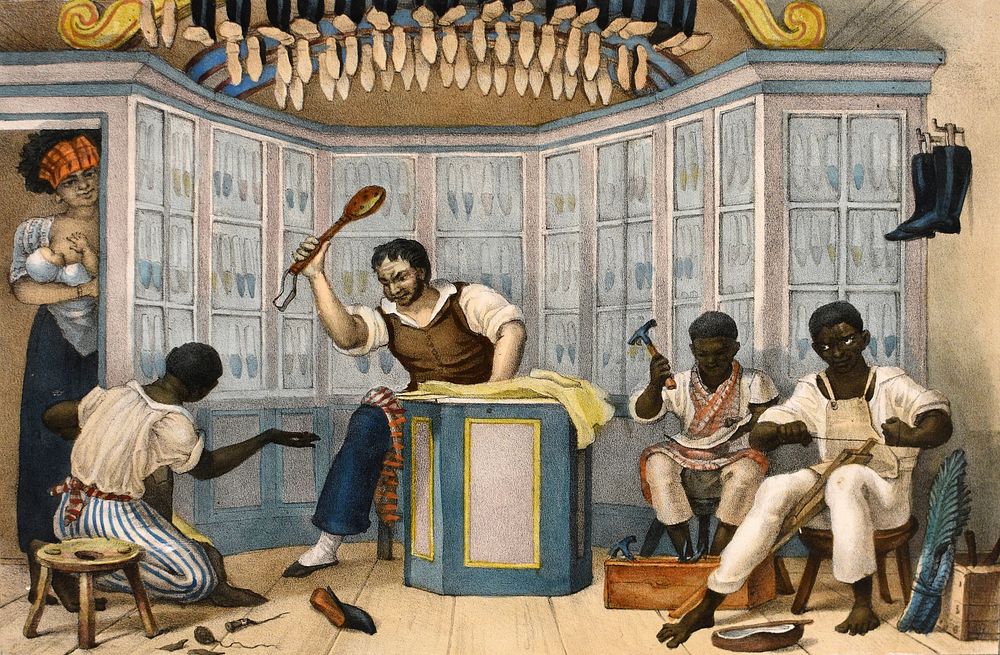https://creativecommons.org/publicdomain/zero/1.0/https://www.rawpixel.com/image/7666225

Shoe Shop by Jean-Baptiste DebretThe artist shows two reactions in the black faces: One look with fear the punishment by a whip paddle which his friend is submitted to, maybe thinking that it may happen to him as well. The other seems to pretend not to notice it; his attention is in the task he is given, so that no punishment may befall him because of the care he has for his job. In general, the body language and expression of all tree seems to express the condition of submission in which they are, and, in some sense, legitimize the action of the shoemaker.[1] The situation described could confirm the brutality of the slave system, which was of course condemned by the French-post revolutionary view of Debret.But there is also someone who is watching the scene, by the door to the left. That is the mulatta of a Portuguese shoemaker, who, while breastfeed her son, has a different opinion of the situation. She seems to be curious.[1] She is not rejecting the scene or disgusted by what she is seeing, but appears to feel a sensation of happiness about the scene she is contemplating. Is this mulatta above in the social scale because of her relationship with the shoemaker? That is why she express some masochist pleasure in witnessing the suffering of others? That is what Debret probably wanted to portrait, that this mulatta could not resit the temptation to spy the punishment.[1]
Original public domain image from Wikimedia Commons
Public DomainFree CC0 image for Personal and Business use